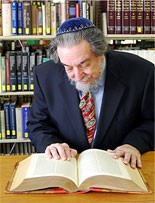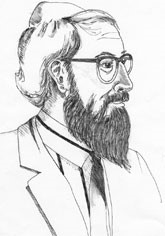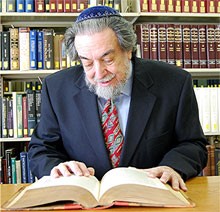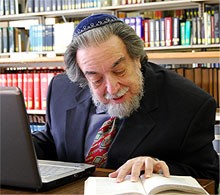Who Is Rebbe Zev?
ב”ה
 |
Rabbi Zev-Hayyim Feyer received סמיכה (Smichah, Ordination) in 1977. In keeping with the ancient Talmudic and early Hassidic traditions, he did not attend Yeshivah (Seminary); rather, in 1970, he attached himself as a student to Rabbi Joseph Gelbermanז”ל of New York and studied for some seven years under the direction of Rabbi Gelberman and Rabbis Shlomo Carlebachז”ל and Zalman Schachter-Shalomi ז”ל. Finally, in 1977, when his mentors determined that he was ready, they ordained him a rabbi. |  |
 |
In the early 1980s, Rabbi Feyer served for two years as the spiritual leader of Temple Bnai Israel, a Reform congregation in Anderson, South Carolina. He has also led less formal fellowship groups (havurot) in Washington, Atlanta, and Fort Lauderdale. From 1994 to 2002, he served as a hospital and hospice chaplain in Charleston SC, Kansas City, and San Diego, with specialties in Mental Health Chaplaincy and AIDS/HIV Chaplaincy. He holds the degree of Master of Arts in Religion from Claremont School of Theology, and he is enrolled in a PhD program in Hebrew Bible, also at Claremont School of Theology. He is a member of the National Advisory Board of the Jewish Peace Fellowship, the Council of Elders of the Shomer Shalom Institute for Jewish Non-Violence. Rabbi Feyer has taught classes and led workshops (say, rather, “playshops”) and seminars at churches, synagogues, mosques, and other spiritual centers throughout the United States and Canada. His subjects include Kabbalah (the Jewish metaphysical tradition and the foundation of all Western mysticism), Self-Esteem, Prosperity, Forgiveness, the Metaphysical Interpretation of Scripture, Spiritual Tales of Many Traditions, the Divine Commandment of Non-Violence, the Unity of Religious Traditions, and many related areas. His audiences have included synagogue groups, Islamic centers, Silva Mind Control Centers, and Episcopalian, Presbyterian, Baptist, Methodist, Catholic, Lutheran, Nazarene, Unity, Religious Science, Science of Mind, Divine Science, Unitarian-Universalist, and Metropolitan Community Church congregations in twenty-seven states, the District of Columbia, and three Canadian provinces. |
|
 |
When asked about his approach to Kabbalah, Rabbi Feyer says that Kabbalah, while clearly and unmistakably the Jewish mystical tradition, is also much more than that. Unlike many other religious traditions, whose mystical elements are hidden or consigned to the status of an additional or peripheral aspect, Judaism finds its mysticism to be its heart and soul, its essence, its very life-force. Furthermore, Kabbalah, in addition to being the heart of Judaism, is also, as Rabbi Feyer puts it, “a body of ancient universal mystical wisdom, preserved in a Jewish form but applicable to every faith tradition.”
|
 |
